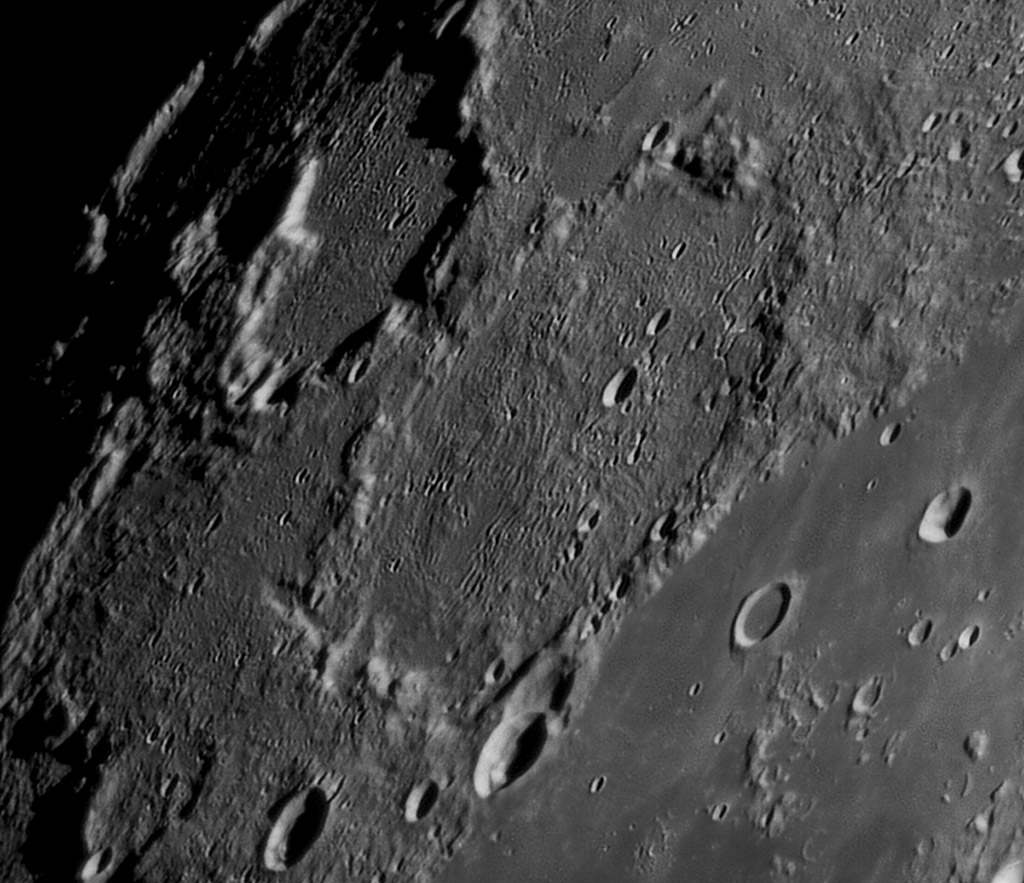March 17, 2014
A Different Kind of Swirl
image by George Tarsoudis, Alexandroupolis - Greece
I have clipped out just one feature from a new mosaic George has posted on his website. But it is a fascinating feature. J. Herschel is a 163 km wide degraded crater. Its rim still rises above the surroundings in a number of places, but the interior has been greatly shallowed, and a central mound with a swirled surface rises up to 400 m above the floors edges. This swirled material has been considered to be a surface flow of ejecta from the formation of the Imbrium Basin, and it may well be, but why are there no other similar deposits nearby? Similarly swirled deposits near Orientale cover wide areas. George noted that his image captured the short and complex rille system on the right side of the crater floor. The three overlapping craters at the south end of the system is the vent area for a long-known pyroclastic deposit, described recently in a student proposal and presentation of a NASA intern. Very few pyroclastic deposits occur in this northern part of the Moon, and it is surprising that this one is inside a basin ejecta filled crater. But the rilles show that lava reached the surface, perhaps up fractures associated with the controversial northern rim of the Imbrium Basin.
Chuck Wood
Technical Details
Mar 14, 2014. SkyWatcher 14 inch @f/4.5, camera QHY 5L-II, filter Red, barlow 3X, mosaic 4 images.
Related Links
21st Century Atlas chart 19.
George's website and Facebook page
COMMENTS?
Click on this icon File:PostIcon.jpg at the upper right to post a comment.




